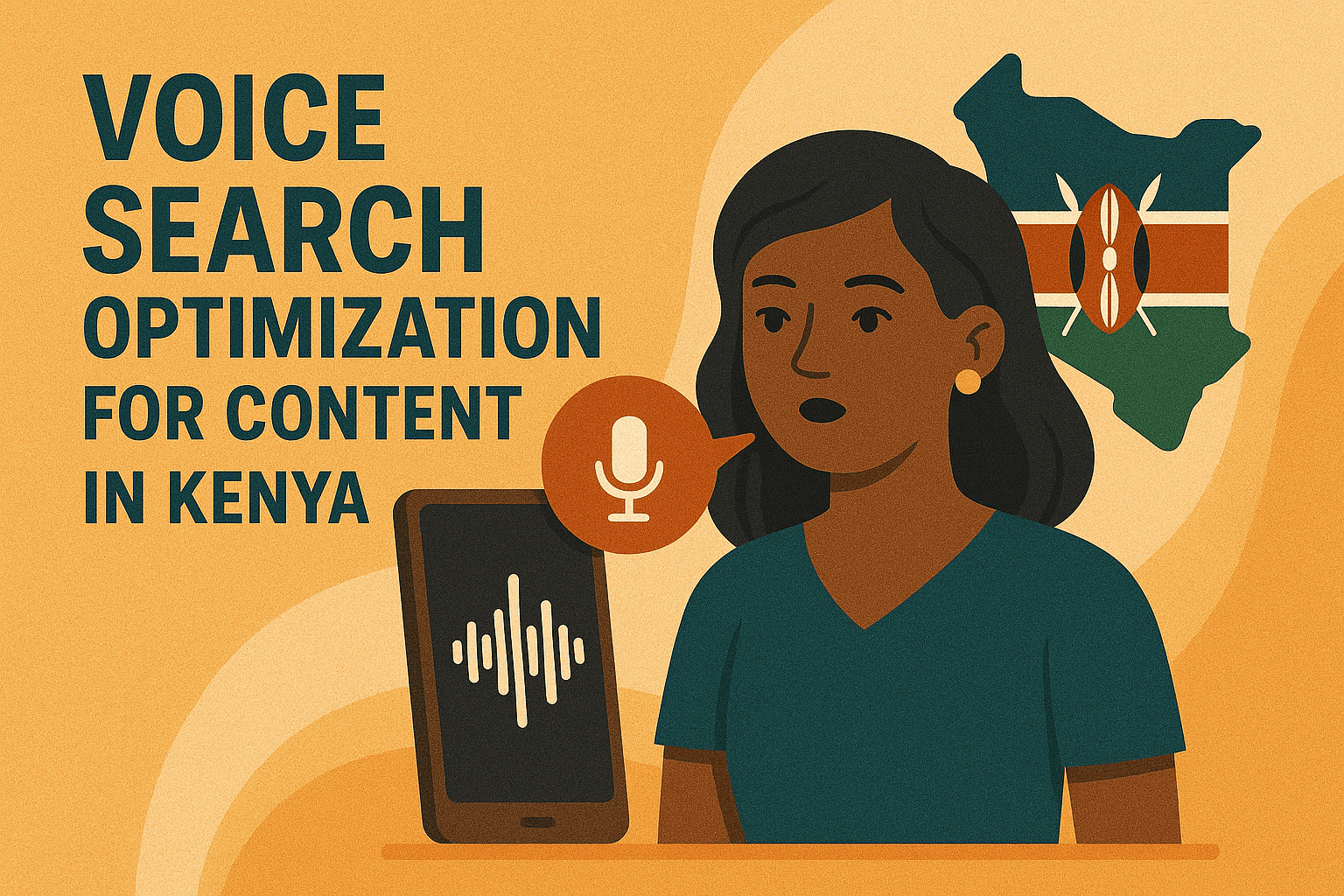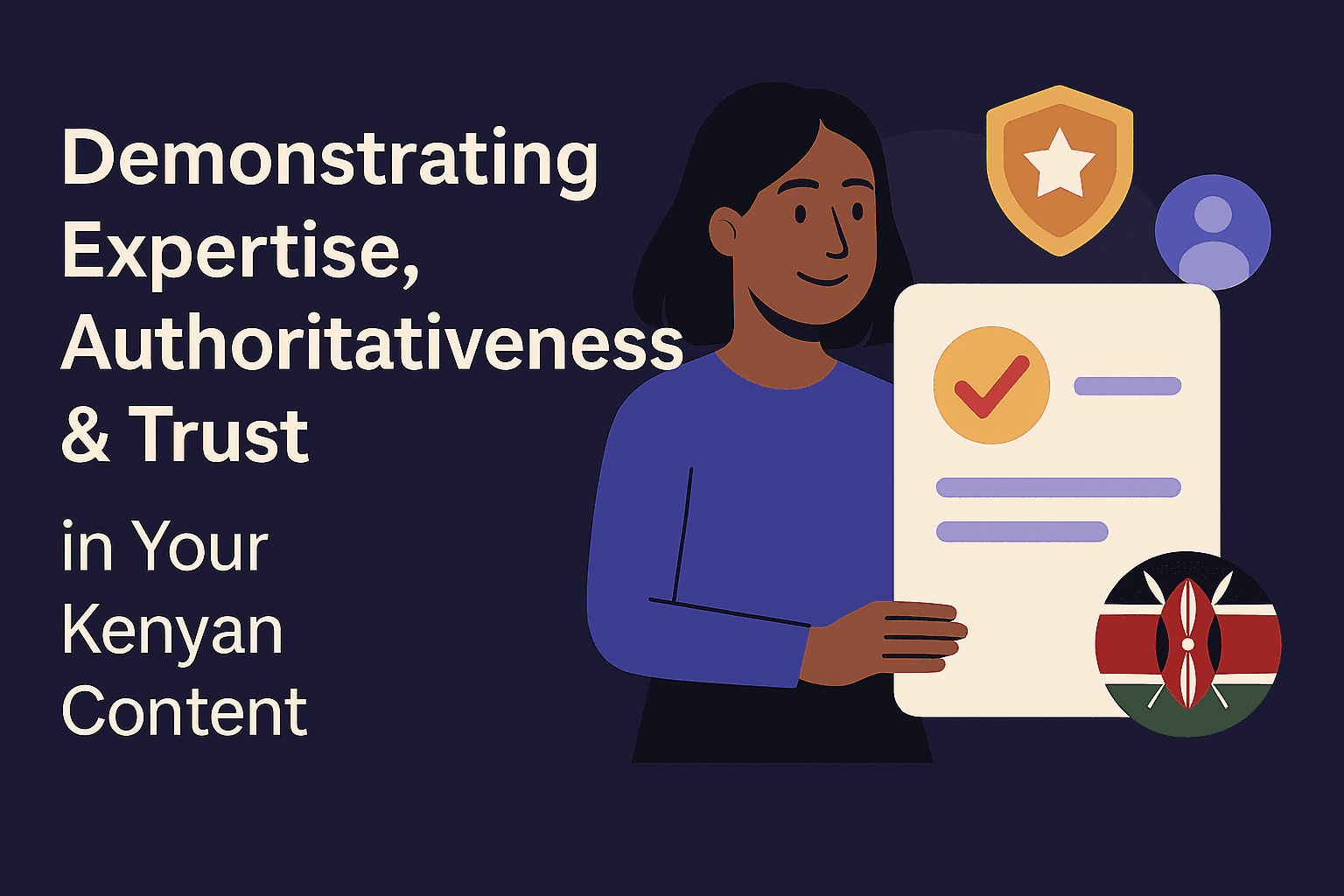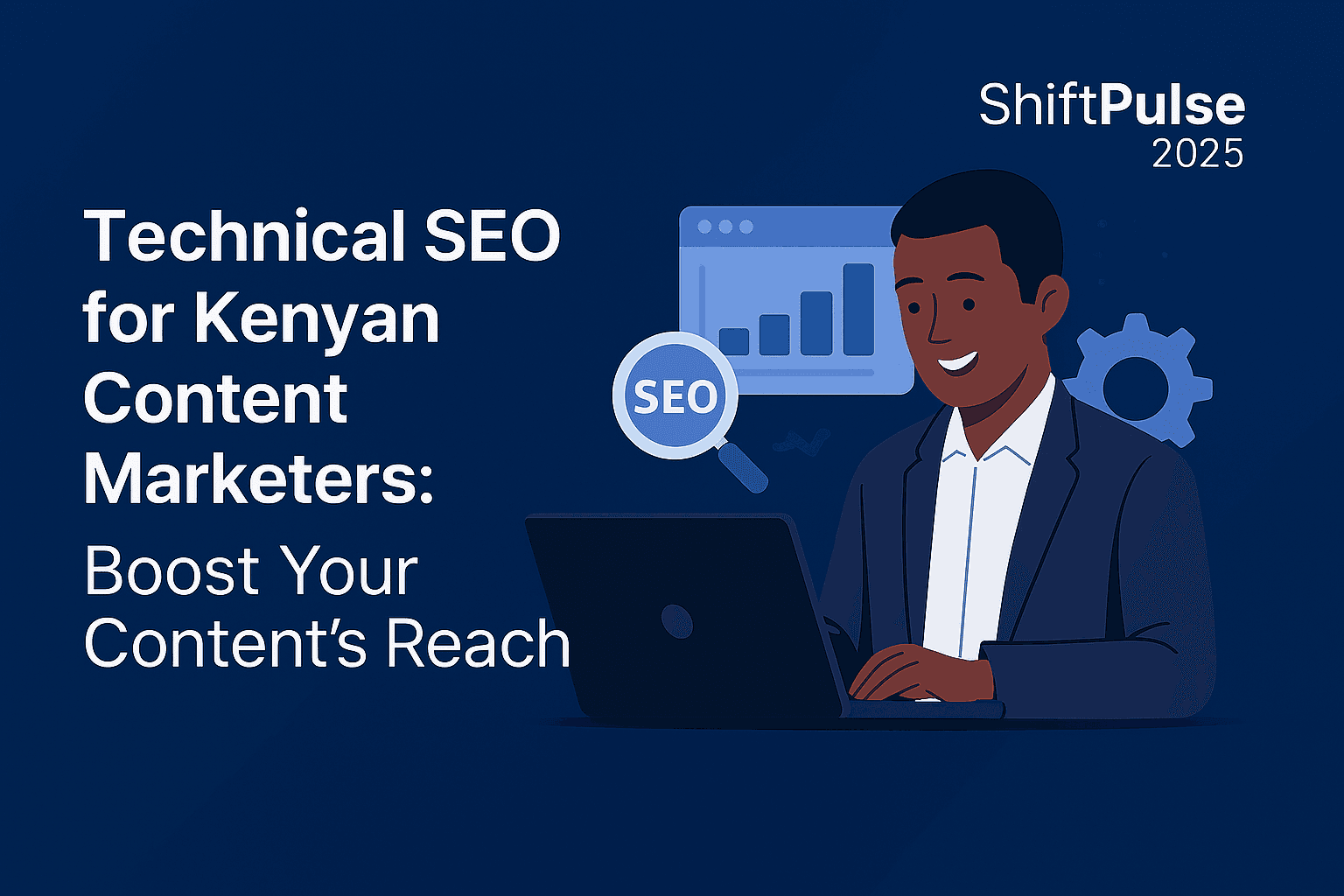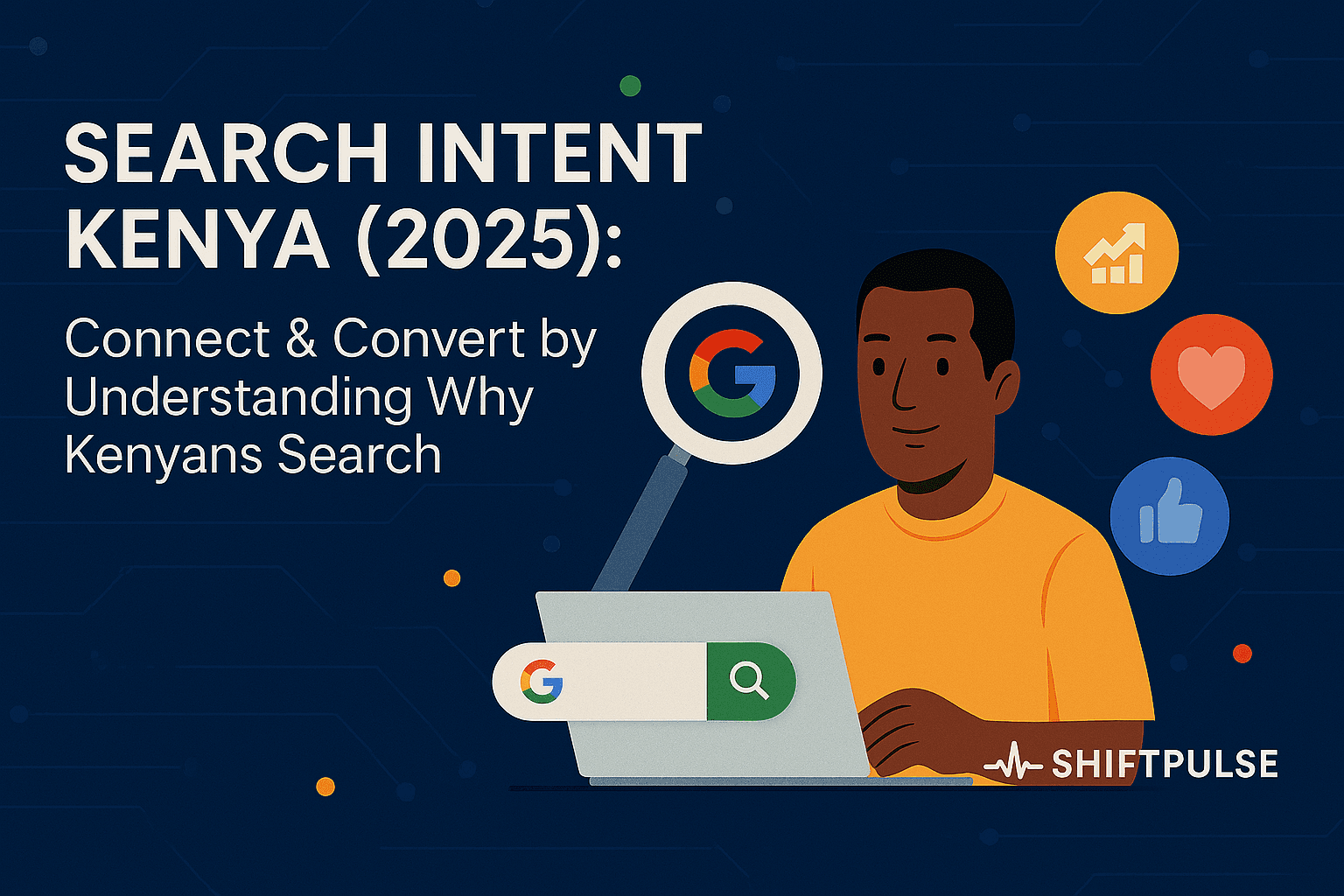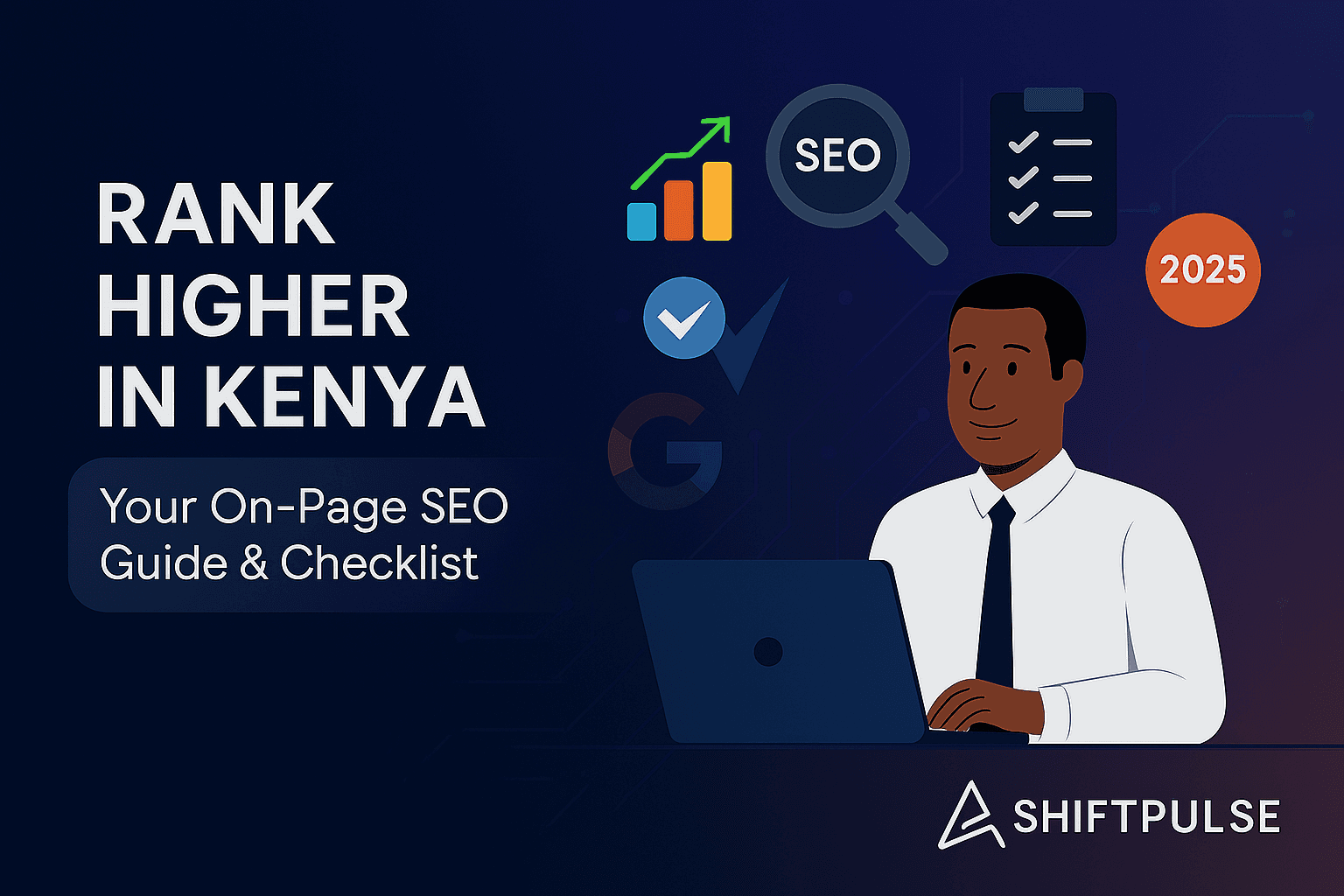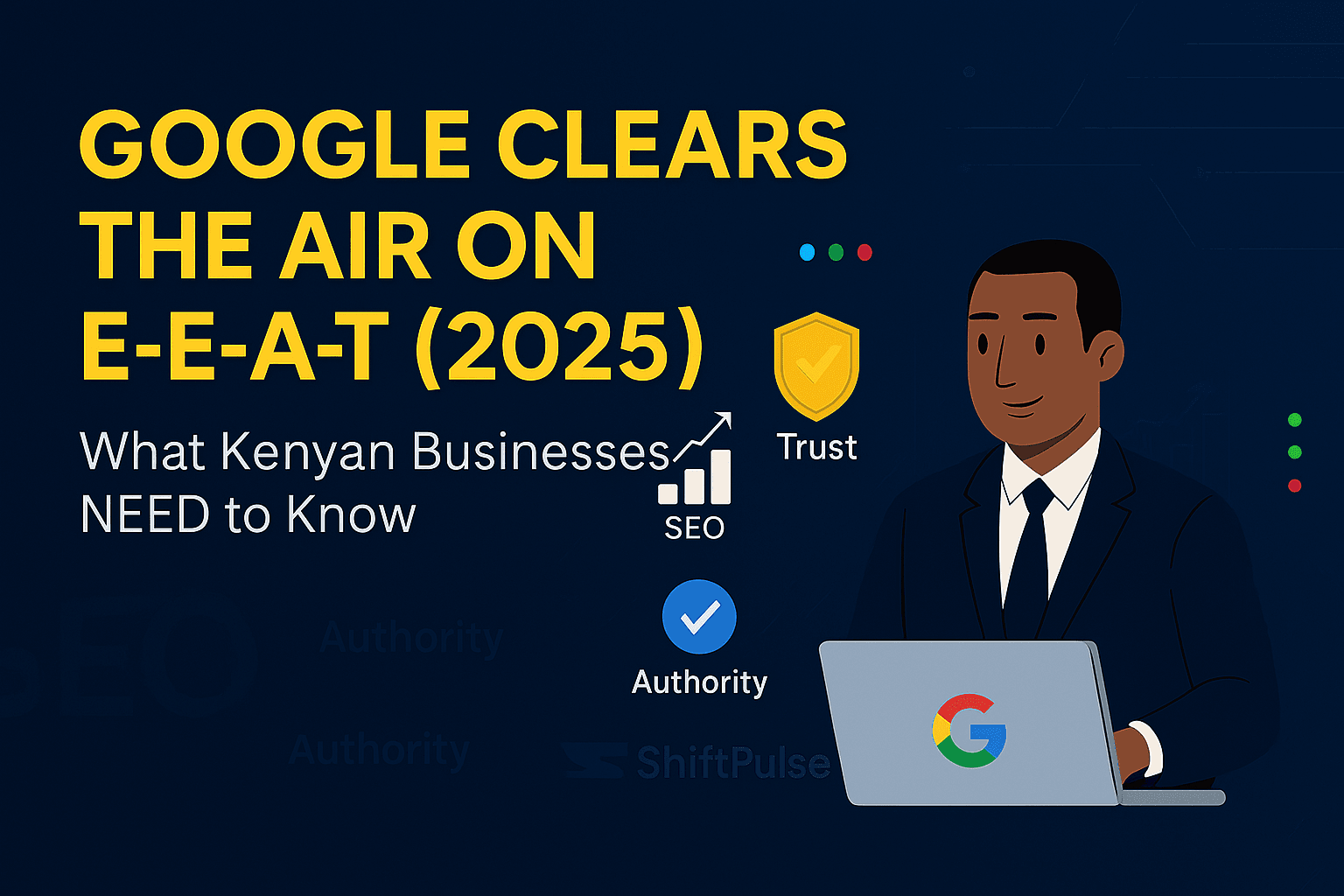
Ken Kariuki
Shiftpulse Marketers
Debunking SEO Myths: A Comprehensive Guide for Kenyan Businesses
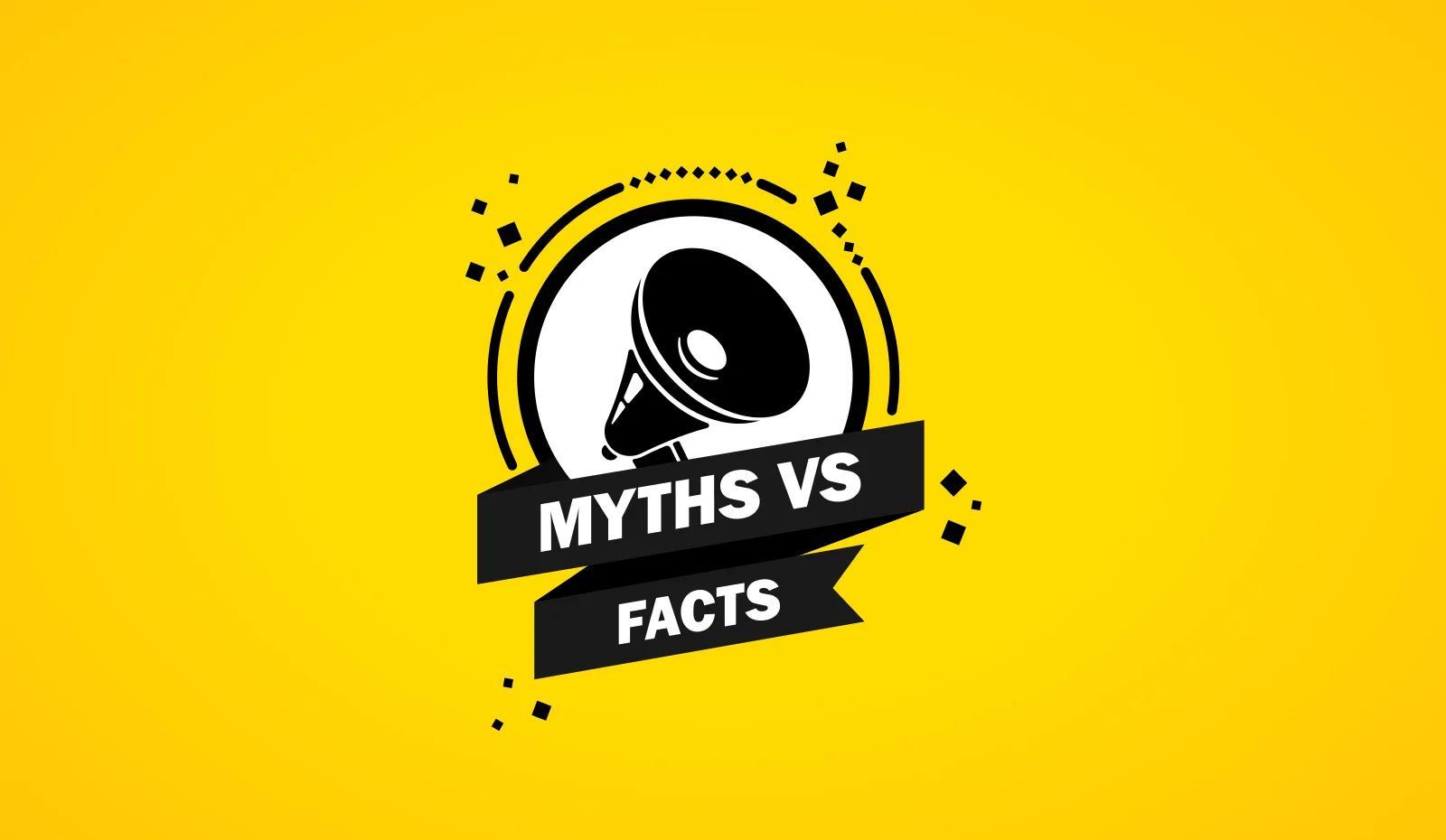
TL;DR: SEO myths can mislead businesses, but ranking beyond page 1 still holds value. Kenyan businesses should focus on long-tail keywords, content optimization, local SEO, mobile-friendliness, and technical improvements to enhance visibility. User engagement, backlinks, and algorithm updates remain crucial for success.
Introduction
In today's digital age, the internet has become the primary marketplace for businesses of all sizes. Search Engine Optimization (SEO) plays a vital role in driving organic traffic and achieving online success. However, the world of SEO is often shrouded in myths and misconceptions that can mislead businesses and hinder their online growth. This comprehensive guide aims to debunk some of the most prevalent SEO myths, providing Kenyan businesses with accurate information and practical strategies to enhance their online visibility and reach their target audience effectively.
Debunking the Myth: "No One Visits Page 2 on Google"
One of the most persistent myths in the SEO world is the notion that "no one visits page 2 on Google." While it's true that the first page of Google captures a significant portion of search traffic 1, it's not the whole story. A considerable percentage of users venture beyond the first page, particularly for specific or research-intensive queries1.
Why People Visit Page 2 (and Beyond):
- Refining Search Queries: When users don't find what they're looking for on the first page, they often refine their search queries, leading them to explore subsequent pages1.
- In-depth Research: For complex topics, users are more likely to delve deeper into search results, clicking on links beyond the first page to gather comprehensive information1.
- Varied Search Habits: Search habits differ based on the user's intent and the complexity of their query. Some searches naturally lead to more exploration beyond the first page1.
Debunking the “Second Page” Myth: Eye-Opening SEO Stats
🔹 71% of all Google search traffic goes to the first page.
🔹 91.5% of users never leave page 1—they find what they need there.
🔹 75% of people never scroll past the first page at all.
🔹 The #1 search result gets a whopping 28.75% of all clicks.
🔹 The top 3 results capture over half (54.4%) of all clicks.
🔹 Page 2? It only gets 0.63% of clicks—almost nothing!
🔹 Total traffic from page 2 is just 5%, while page 3 drops to 1%.
📌 Bottom line: If you’re not ranking on page 1, you’re missing out big time! 🚀
These statistics highlight some important aspects of user behavior on Google. While the majority of users (71%) find what they need on the first page, a significant portion (91.5%) don't even scroll through the entire first page. This emphasizes the importance of ranking high on the first page to maximize visibility. Furthermore, the top 3 results capture over half of all clicks (54.4%), with the first result alone receiving over a quarter of all clicks (28.75%). This underscores the competitive nature of the first page and the need for effective SEO strategies to secure top positions2. It's also worth noting that click-through rates decrease significantly as you move further down the search results, with page 2 driving only 5% of traffic and page 3 a mere 1%3.
Interestingly, despite the prominence of ads on search results pages, most users tend to focus on organic results4. This reinforces the value of organic search traffic and the importance of investing in SEO to improve organic rankings.
SEO Strategies for Kenyan Businesses to Rank on Page 2 (and Beyond)
While ranking on the first page of Google is the ultimate goal, achieving a strong presence on page 2 and beyond can still be beneficial for Kenyan businesses. Here are some SEO strategies to help you achieve that:
1. Long-Tail Keyword Targeting:
Focus on long-tail keywords, which are longer and more specific phrases that users search for. These keywords often have lower competition, making it easier to rank higher. For example, instead of targeting "shoes," try "affordable running shoes in Nairobi." 5
2. Content Optimization:
Create high-quality, informative, and engaging content that caters to the needs and interests of your target audience. Optimize your content with relevant keywords, meta descriptions, and header tags5.
3. Link Building:
Build high-quality backlinks from reputable websites in Kenya. This can be achieved through guest blogging, social media sharing, and local partnerships5.
4. Local SEO:
If your business serves a specific location in Kenya, optimize your website and Google My Business profile for local searches. This includes using local keywords, listing your business in local directories, and encouraging customer reviews5.
It's important to remember that local SEO is not just for businesses with a local customer base. Even if you cater to a national or international audience, optimizing for local searches can be beneficial. A significant portion of Google searches (46%) are for something local, so neglecting local SEO means missing out on potential customers in your area6.
Optimizing Your Google My Business Profile:
Your Google My Business (GMB) profile is a crucial element of local SEO. Here are some tips to optimize your GMB profile:
- Business Description: Write a clear and concise description of your business, highlighting your unique selling points and incorporating relevant keywords7.
- Address Visibility: Ensure your address is visible and accurate on your GMB profile. This helps customers find your physical location and improves your local search visibility7.
- Reviews: Encourage satisfied customers to leave reviews on your GMB profile. Positive reviews can boost your local rankings and build trust with potential customers7.
- Photos: Add high-quality photos of your business, products, or services to your GMB profile. This helps attract customers and provides visual appeal7.
5. Mobile Optimization:
With the majority of internet users in Kenya accessing the web through mobile devices, ensure your website is mobile-friendly. This includes having a responsive design, fast loading speeds, and easy navigation on smaller screens5.
6. Technical SEO:
Optimize the technical aspects of your website, such as site speed, crawlability, and indexability. This can be achieved by compressing images, enabling browser caching, and submitting an XML sitemap5.
Factors Influencing Search Engine Rankings:
Several factors contribute to your website's ranking on search engine results pages (SERPs). These include:
- On-page Optimization: This refers to optimizing the content and structure of your web pages, including keyword usage, meta descriptions, header tags, and internal linking8.
- Off-page Optimization: This involves activities outside of your website that influence your rankings, such as building backlinks from other reputable websites8.
- User Engagement Metrics: Factors like bounce rate, time spent on the page, and click-through rate from SERPs indicate user engagement and can influence ranking8.
- Algorithmic Updates: Search engine algorithms are constantly evolving to improve their accuracy and effectiveness. Staying updated on these changes is crucial for maintaining a strong SEO presence8.
It's essential to create high-quality, informative, and engaging content that caters specifically to the Kenyan audience's search intent. Address their pain points, provide valuable solutions, and establish yourself as a trusted authority in your niche. Kenyans appreciate content that is informative, culturally relevant, and easy to understand8.
Debunking Other Common SEO Myths
In addition to the myth of "no one visits page 2," several other misconceptions can hinder businesses' SEO efforts. Let's debunk some of these:
Myth 1: SEO is a one-time task.
Reality: SEO is an ongoing process that requires continuous effort and adaptation. Search engine algorithms are constantly evolving, and user behavior changes over time. To maintain and improve your rankings, you need to regularly update your website, create fresh content, and stay informed about the latest SEO trends9.
Myth 2: More links = better rankings.
Reality: While backlinks are important, quality trumps quantity. A few high-quality backlinks from authoritative websites are more valuable than numerous low-quality or irrelevant links. Focus on earning natural links by creating valuable content that others want to link to9.
Myth 3: Meta tags don't matter anymore.
Reality: Meta tags, including title tags and meta descriptions, still play a role in SEO. They provide context to search engines and users about your page's content. Optimize your meta tags with relevant keywords and compelling descriptions to improve click-through rates from search results9.
Myth 4: Long-form content always ranks better.
Reality: While long-form content can be valuable, it's not always the key to higher rankings. The most important factor is creating high-quality, informative content that satisfies user intent. Focus on providing comprehensive and engaging information that addresses the needs of your target audience9.
Myth 5: Duplicate content will get you penalized.
Reality: While duplicate content can cause indexing issues, it won't necessarily result in a penalty. Google's algorithms are designed to identify and prioritize the original source of content. However, it's still best to avoid duplicate content by creating unique and valuable content for each page on your website9.
Myth 6: SEO is all about rankings.
Reality: While rankings are important, they are not the sole measure of SEO success. The ultimate goal of SEO is to drive relevant traffic to your website and achieve your business objectives, whether it's generating leads, increasing sales, or building brand awareness9. It's important to remember that rankings can be misleading. A keyword's rank depends on various factors, including search intent, the device being used, and the location of the searcher. Investing resources just to rank highly for something nobody searches for is a waste of time. Instead, prioritize the keywords your target audience frequently searches and optimize your content around them to drive more qualified traffic9.
Myth 7: You can see immediate results with SEO.
Reality: SEO is a long-term strategy that takes time to yield results. It can take weeks or even months to see significant improvements in your rankings and organic traffic. Be patient and consistent with your SEO efforts, and focus on building a sustainable online presence9.
Myth 8: Google uses Google Analytics data in rankings.
Reality: Google has explicitly stated that they do not use Google Analytics data in their ranking algorithms. While Google Analytics provides valuable insights into user behavior, it's not a direct factor in determining search rankings12.
Myth 9: Social signals are a ranking factor.
Reality: While social media can indirectly influence SEO by driving traffic and potentially generating backlinks, social signals themselves are not a direct ranking factor13.
Myth 10: Keyword stuffing is a viable strategy.
Reality: Keyword stuffing, which involves cramming excessive keywords into your content, is an outdated and harmful practice. Search engines can easily detect keyword stuffing and may penalize your website for it. Focus on using keywords naturally and strategically within high-quality content13. While high-volume keywords can drive traffic, less popular keywords with higher purchase intent can be more valuable for conversions. For instance, a keyword like "buy leather boots online" might have fewer searches than "boots," but the former indicates a clear intent to purchase. By focusing on keywords like these, businesses can achieve better conversion rates and build a loyal customer base14.
Key Takeaways for Kenyan Businesses
The success stories of Kenyan IT companies provide valuable insights for businesses looking to thrive in the digital landscape. Here are some key takeaways:
- Identify a Problem: Successful companies start by identifying a problem or a gap in the market. By addressing a real need, they create solutions that resonate with customers15.
- Embrace Innovation: Kenyan IT companies have thrived by embracing innovation and leveraging technology to create transformative solutions. By staying at the forefront of technological advancements, they can stay ahead of the competition15.
- Build Strategic Partnerships: Collaborations and partnerships have been instrumental in the global success of Kenyan IT companies. By forging strategic alliances, startups can access new markets, resources, and expertise that can accelerate their growth15.
- Invest in Talent Development: Building a skilled workforce is essential for the success of any company. Kenyan IT companies have invested in training programs and partnerships with educational institutions to bridge the skills gap and ensure they have the right talent to drive innovation15.
Resources for Further Learning
For those interested in exploring SEO myths and best practices in more detail, here are some valuable resources:
- Purple Planet: This blog post debunks common SEO myths and emphasizes the importance of quality content and user experience14.
- Ayokay: This article discusses five common SEO myths, including the misconception that SEO is a one-time task and the myth that bounce rate is a direct ranking factor11.
- Collaborada: This blog post delves into various SEO myths related to website platforms, content length, URLs, and more16.
- SEMrush: This article debunks 12 of the biggest SEO myths, providing detailed explanations and practical tips for avoiding common misconceptions17.
- Search Engine Journal: This comprehensive article explores various SEO myths, including the Google Sandbox and Honeymoon effects, duplicate content penalties, and the impact of PPC advertising on rankings18.
Conclusion
By debunking these common SEO myths, Kenyan businesses can gain a clearer understanding of how search engines work and develop effective strategies to improve their online visibility. SEO is an ongoing process that requires continuous effort, adaptation, and a focus on providing valuable content to your target audience.
It's crucial to adopt a holistic SEO strategy that encompasses both on-page and off-page optimization, technical SEO, and local SEO. By optimizing your website's content, structure, and technical aspects, building high-quality backlinks, and establishing a strong local presence, you can improve your chances of ranking higher on SERPs, even beyond the first page.
Remember that user experience is paramount. Create content that is informative, engaging, and relevant to your target audience. Optimize your website for mobile devices to cater to the growing mobile audience in Kenya. By focusing on user experience and valuable content, you can attract and retain visitors, improve engagement metrics, and ultimately achieve your business objectives.
By staying informed, implementing best practices, and avoiding outdated tactics, Kenyan businesses can achieve sustainable online growth and reach their full potential in the digital marketplace.
Works cited
1. www.redlocalseo.com, accessed January 29, 2025, https://www.redlocalseo.com/first-page-of-google/#:~:text=First%20Page%20of%20Google%20Statistics%3A%20Key%20Findings&text=75%25%20of%20people%20will%20never,gets%2028.75%25%20of%20all%20clicks.&text=0.63%25%20of%20Google%20searches%20click,Google%20consists%20of%201%2C447%20words.
2. 7 First Page of Google Statistics, Facts in 2023: (Surprising) - RedLocalSEO, accessed January 29, 2025, https://www.redlocalseo.com/first-page-of-google/
3. The First Page of Google, by the Numbers - ProtoFuse, accessed January 29, 2025, https://protofuse.com/articles/first-page-of-google-stats/
4. Do People Click Past The First Page of Google | Reputation911, accessed January 29, 2025, https://reputation911.com/do-people-click-past-the-first-page-of-google/
5. SEO for Small Businesses in Kenya: Affordable Tips to Boost Rankings, accessed January 29, 2025, https://digilabmarketingagency.co.ke/seo-for-small-businesses-in-kenya-affordable-tips-to-boost-rankings/
6. 7 Common SEO Myths and Mistakes Debunked in 2024 - BKA Content, accessed January 29, 2025, https://www.bkacontent.com/seo-myths/
7. 2024 Google My Business how to rank study. If you have/manage a GMB, do this! - Reddit, accessed January 29, 2025, https://www.reddit.com/r/SEO/comments/19e4cxf/2024_google_my_business_how_to_rank_study_if_you/
8. SEO in Kenya: How To Rank Your Website On First Page of Google in Kenya in 2025 - Dot Digital Marketing Agency, accessed January 29, 2025, https://digitalagency.co.ke/blog/search-engine-optimisation/seo-in-kenya-how-to-rank-your-website-on-first-page-of-google-in-kenya/
9. Fact or Fiction? 7 Popular SEO Myths Debunked - Bruce Clay, accessed January 29, 2025, https://www.bruceclay.com/blog/popular-seo-myths-debunked/
10. Debunking 10 Common SEO Misconceptions - Forbes, accessed January 29, 2025, https://www.forbes.com/councils/forbesagencycouncil/2023/10/23/debunking-10-common-seo-misconceptions/
11. Debunking 5 Common SEO Myths - Ayokay, accessed January 29, 2025, https://www.ayokay.com/common-seo-myths-debunking-5-misconceptions-about-seo/
12. BUSTED! 6 Big SEO Myths Debunked - Ironmark, accessed January 29, 2025, https://ironmarkusa.com/seo-myths-debunked/
13. The Top 10 SEO Myths: Don't Fall Into These Often Repeated Traps | BigCommerce, accessed January 29, 2025, https://www.bigcommerce.com/blog/seo-myths/
14. SEO Myths Debunked: What Really Matters - purpleplanet, accessed January 29, 2025, https://purpleplanet.com/blog/seo-myths-debunked-what-really-matters/
15. From Startup to Success: Inspiring Stories of Kenyan IT Companies Creating Global Impact, accessed January 29, 2025, https://ctgafrica.com/from-startup-to-success-inspiring-stories-of-kenyan-it-companies-creating-global-impact/
16. Debunking SEO Myths, Misconceptions, and Misinformation - Collaborada, accessed January 29, 2025, https://www.collaborada.com/blog/h0gw4sh
17. 12 of the Biggest SEO Myths: Explained & Debunked - Semrush, accessed January 29, 2025, https://www.semrush.com/blog/seo-myths/
18. How To Spot SEO Myths: 26 Common SEO Myths, Debunked - Search Engine Journal, accessed January 29, 2025, https://www.searchenginejournal.com/seo/seo-myths/

